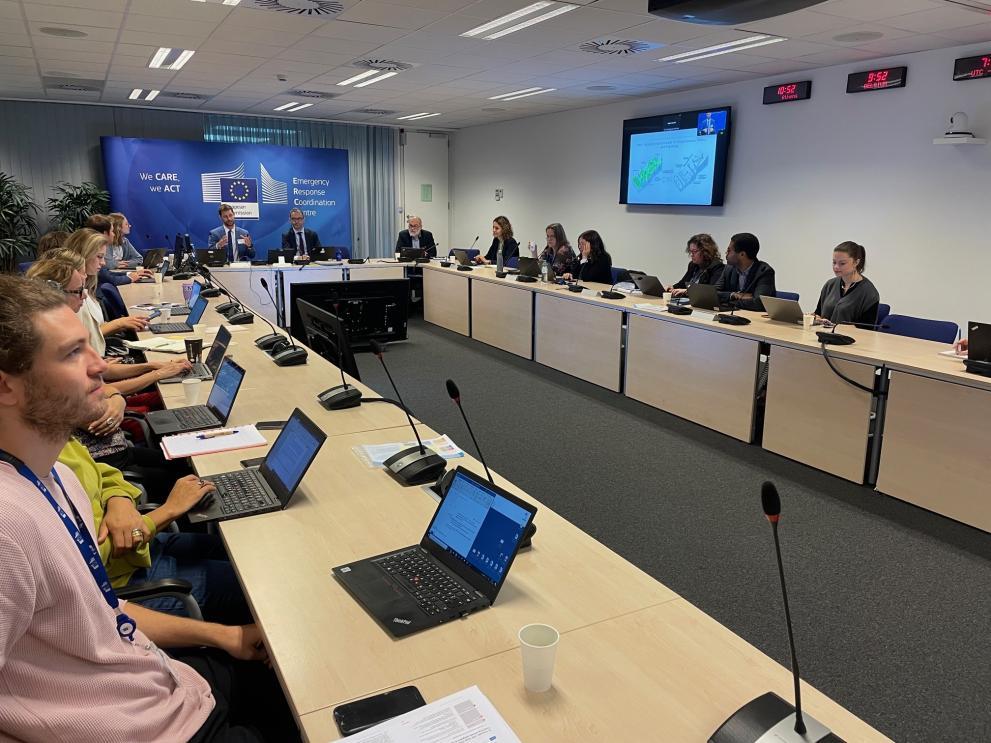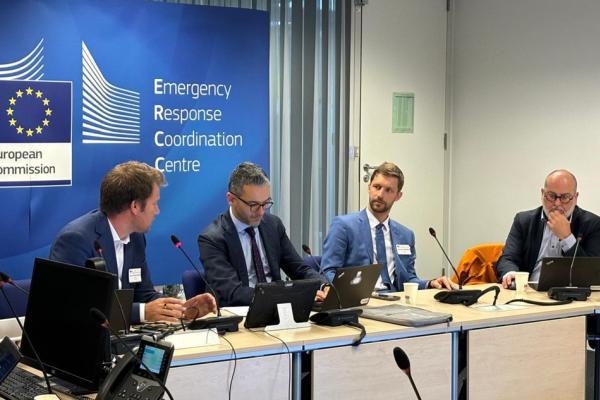
The first in a series of UCPM ‘Knowledge Exchanges’ on Nature-Based Solutions (NBS) was held on 12 September in Brussels. The event, jointly hosted by the European Commission and the World Bank through the Global Facility for Disaster Reduction and Recovery (GFDRR), was designed to bring key stakeholders together to consider which policy instruments were the most feasible for further promoting NBS in disaster risk reduction work.
Why the focus on Nature Based Solutions?
One of the key findings of the recent joint ECHO-World Bank studies on economics for disaster prevention and preparedness was that Nature-Based Solutions (NBS) are often the smartest instrument, in that they provide the most return on investment. If implemented well, NBS can reduce climate risks, support biodiversity and improve peoples’ livelihoods.

‘It’s nature but nature with all those benefits for people’
Beira Park in Mozambique: Examples of NBS in action
World Bank NBS experts from GFDRR, Brenden Jongman and Boris Van Zanten, were the main speakers at the event. They took us through examples of how Nature-Based Solutions are being used creatively and successfully in urban planning worldwide; for example in Beira, Mozambique, where a new urban park has led to increased green space in the city, as well as a generating income (eg through a small entrance fee for festivals etc).
In Bogota, Colombia, meanwhile, an urban resilience management project has resulted in significant environmental recuperation for the city.
Green and Grey
Jongman emphasised the need for a combination of ‘green and grey’ systems in urban planning. He underlined that green space in cities can actually help to reduce temperatures by between 3-5 degrees, which can save lives.
Van Zanten highlighted some of the challenges in making Nature Based Solutions work; namely knowledge gaps and resources on the ground. He recognised that although there is often real support for NBS, a lack of technical expertise and monitoring solutions can make them difficult to establish. He pointed out that a business case is crucial here, to look at how NBS can be made to work financially. Several participants also highlighted the importance of involving the private sector at an early stage.
Mainstreaming is important in addition to financing separate NBS projects because, for example, engineering or risk management guidance does not necessarily allow for NBS solutions.

‘It is better to prevent than solve an issue’
Global use of European knowledge
The speakers highlighted that significant advances in the mainstreaming of NBS in the World Bank’s investment portfolio are informed by European knowledge. This includes research and data developed under Horizon 2020 programs as well as direct collaboration between the World Bank and the European Space Agency.
Results of GFDRR and World Bank advancing NBS in Europe and Central Asia
In the Europe and Central Asia region (ECA), the World Bank has financed 16 projects with NBS components worth $655 million since 2012. GFDRR allocated $3.6 million of grants in the ECA region that included activities to support the integration of NBS in these projects. The EU and World Bank’s Technical Assistance Financing Facility (TAFF) | UCP Knowledge Network (europa.eu) could be used to leverage more funding going forward.
Looking to the future
There was lively discussion during the Q & As with different European Commission services (ECHO, CLIMA, INTPA, ENV, EEA, for example), on how can the GFDRR’s case studies could be generalised, and what the bottlenecks were in financing NBS and integrating them into the national and local authorities’ routine agendas.
Nature Based Solutions will be one of the priorities in the forthcoming COP in Azerbaijan, which both EU And GFDRR experts will follow closely.

UCPM Knowledge Series
This knowledge exchange was the first in a UCPM Knowledge Series that ECHO.B3 is hosting throughout the autumn based on the Knowledge Network mandate, to build a bridge between science, policy and practice (see calendar here).
You can read key documents produced by GFDRR on the issue at Knowledge Library | UCP Knowledge Network (europa.eu) or Naturebasedsolutions.org.
About the author

The Knowledge Network editorial team is here to share the news and stories of the Knowledge Network community. We'd love to hear your news, events and personal stories about your life in civil protection and disaster risk management. If you've got a story to share, please contact us.
Sectors
Risk drivers
Thematic series